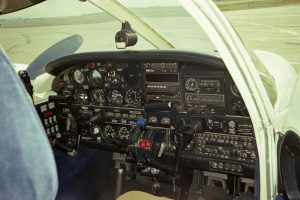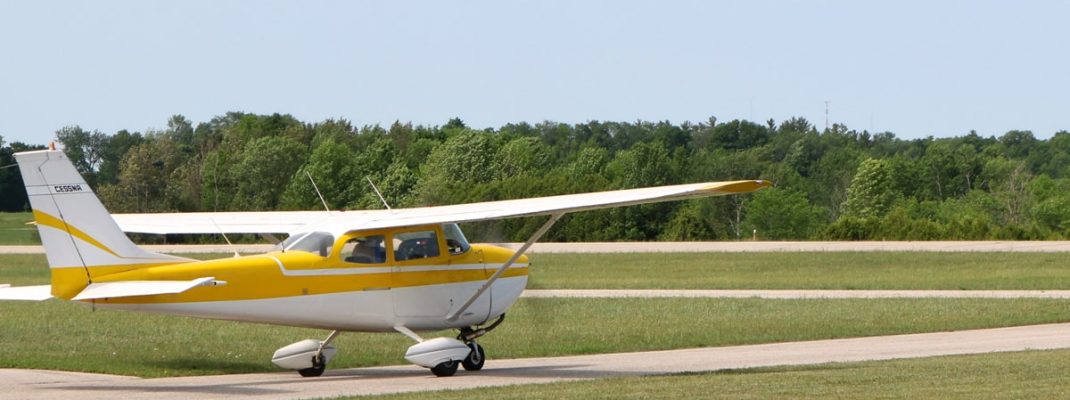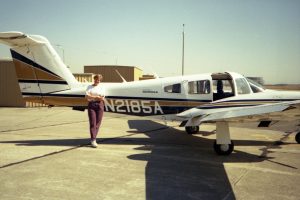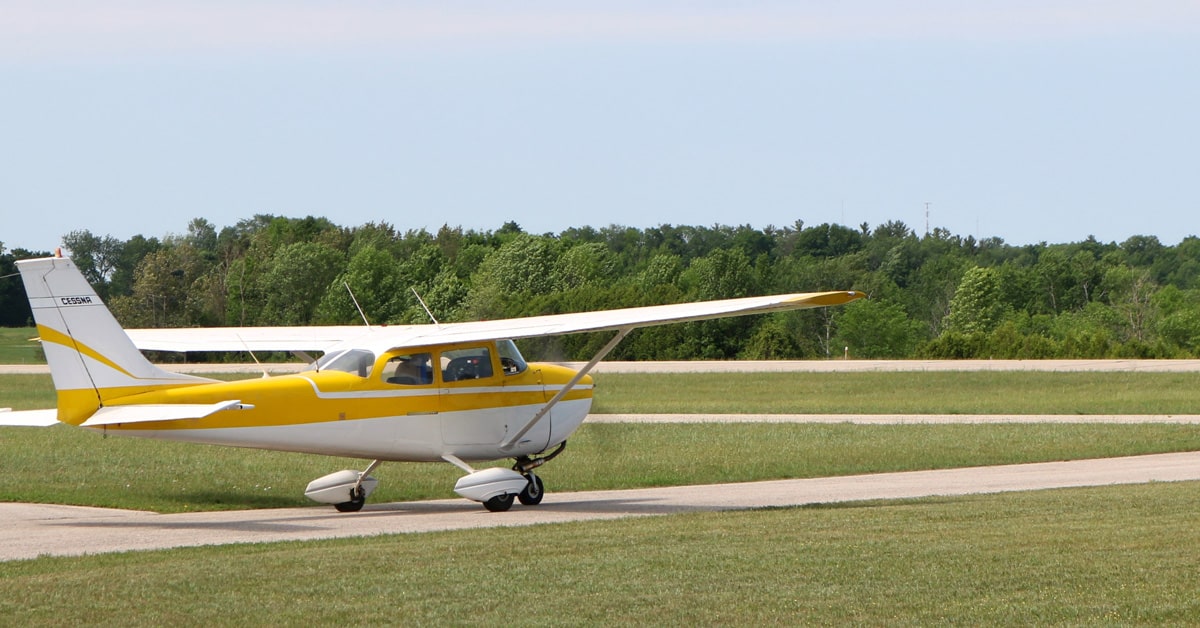“Did you know that women ruined aviation?” asked the examiner.
I stared at the man across the desk with a blank look, not sure if I should laugh or cry. It was my instrument rating oral exam, and I was as nervous as I always am before a test, trying to keep my sense of humor while panic closes in.
“Back in the ‘60s, when they allowed women to fly in the military,” he continued, “airplane designers had to reconfigure the cockpit just to accommodate them. They even lowered the standards so they could fly.”
“I should have been flying back then,” I joked, trying to lighten the moment. While the examiner did not laugh once during our three hours together, I did survive the exam and earned my rating that day.
The moral of the story? Hang in there, keep punching, and don’t let ‘em see you sweat. In ten years of flight training, from age 40 to 50, I took five oral exams, two which I failed the first time and had to retake.
 The oral exam for my multi-engine rating began with a weight and balance problem, based on our upcoming flight. My examiner was a big man with tortoise-shell glasses who wasn’t interested in small talk. Since he left the room before I could ask his weight, I had to guess. I was certain he wouldn’t want me to underestimate it, since that could be dangerous.
The oral exam for my multi-engine rating began with a weight and balance problem, based on our upcoming flight. My examiner was a big man with tortoise-shell glasses who wasn’t interested in small talk. Since he left the room before I could ask his weight, I had to guess. I was certain he wouldn’t want me to underestimate it, since that could be dangerous.
His upper arms looked large, and a “bay window” hung over his belt. My husband was a couple of inches shorter and also had a barrel chest. I knew that he weighed 195 pounds stripped on a good day. His belly didn’t stick out like that, though, so I added 15 pounds and figured I was probably being conservative.
After calculating the weight of two large adults, which included an honest number from me who wishes she was ten pounds thinner, he reappeared and asked me how I was doing. I said, fine, I’ve calculated our weights and full fuel. “How much did you figure me at?” he asked.
“210 pounds,” I replied, casually, not looking at him, not expecting a comment.
“I’m 195,” he said, in an irritated tone.
“Oh, well, I’ve added lots of clothes on you and some heavy shoes,” I quipped.
“Ah, silver-tongued,” he said, sarcastically.
I kicked myself for not underestimating his weight, if only for the test. When I told a friend about this later, she said, “Always remember that weight and age are two things people never want to be realistic about.”
He then began the rest of the exam with two questions about the airplane that I couldn’t answer, although I could answer at least hundred others that I had studied so diligently.
He seemed disgusted, and I must have looked stunned. “Well, we’ll have to go over this another time,” he said.
Finally, after what seemed like an eternity, he moved into things I knew, although, when I struggled with any answer, I think he enjoyed watching me twitch. I really didn’t like this guy.
He had said he was a police officer with “two years, five months and 22 days” left till retirement. When he blurted, “I love stress, but I’ll probably drop dead at 61,” I secretly put in my vote.
Despite the rocky start, I did pass the flight portion of that exam that day and returned two weeks later to pass the oral portion of the test and walk away with my multi-engine rating in hand.
The most difficult oral exam I ever took was for my flight instructor certificate. It began its dubious path with a short walk to the vending machines at 8 a.m. The examiner selected a cola and candy bar, and I joked, “I see you’re into health foods.” No comment.
Then, the oral exam began with a question about himself. “Do you know that I have every certificate and rating available except for lighter-than-air instructor?” No, I didn’t, but I dutifully expressed surprise and amazement at such an accomplishment.
The exam went downhill from there. I had chosen aerodynamics as the subject to teach in my simulated ground school lesson, certainly the most complex and difficult subject in the whole list. It wasn’t long before I talked myself into a black hole. Out came the pink slip.
The next morning I gave my lesson on aerodynamics. I passed that oral exam but failed the flight test, or “checkride.” More on that another time.
What I learned from these failures is that I could indeed pick myself up, dust myself off, and start over again. My goal each time was to leave with my new certificate or rating in hand, a validation of my hard work and determination. Although I may not have gotten them on the first try, I did pass the exams the second time around. I believe that, despite these hulking hurdles along the way, I became a better pilot who got the prize in the end and who knows the importance of keeping a sense of humor.
You can see and hear Laurel at AirVenture!
Tuesday, July 28, 1:00-2:15 p.m. at the Vette Theater in the Museum on Learning to Fly after 40, 50, 60…
She’ll be interviewed on WOSH 1490 radio on Wednesday morning, July 29, from 9:05-9:15 a.m. about You Can Fly!. And She’ll be signing copies of You Can Fly! on Friday and Saturday.





